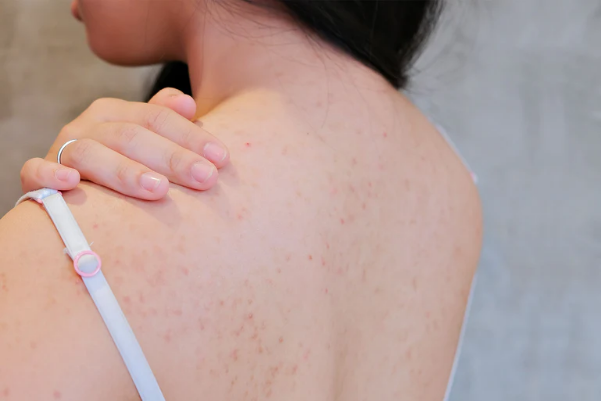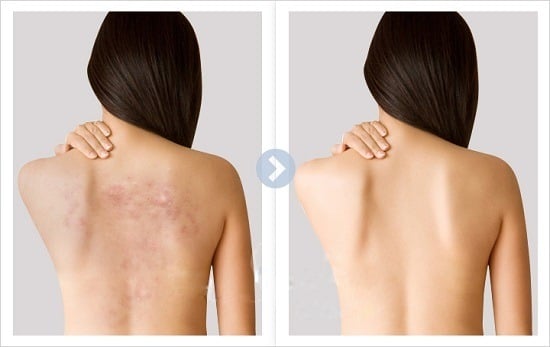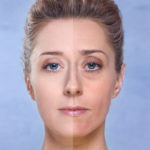The Causes of Back Acne
Similar to the chest and face, the back has a high density of sebaceous glands. Acne forms when excess sebum and dead skin cells accumulate, causing clogged pores and bacteria on the skin. The back is also not as easy to care for as the face, resulting in a higher risk of developing acne.
Hormonal changes in both adolescence and adulthood are often the cause of back acne. Stress can cause the body to produce more cortisol hormone. When cortisol levels increase, the body produces more sebum, which can lead to bacterial growth and clogged pores.
Back acne can also develop as a side effect of certain medications, such as antidepressants.

Treating Back Acne
– Cleanliness: Maintaining clean skin is one of the most effective ways to prevent back acne. Additionally, shampoos, especially those containing sulfates, can cause back acne if not thoroughly rinsed.
– Wearing clean and breathable clothing: Avoid wearing tight-fitting clothes and opt for soft materials. In particular, for women, acne can easily reoccur from wearing tight bras that cause irritation.
– Pay attention to laundry detergent: To get rid of back acne, it is recommended to wash clothes frequently, but pay attention to the choice of laundry detergent and fabric softener.

– Avoid prolonged exposure to hot water: If the back is exposed to hot water for a long time, the amount of sebum produced will increase, making acne more likely to form. Therefore, take short showers, not longer than 15 minutes.
– Exfoliation: When dead skin cells accumulate on the skin surface, pores become clogged, and sebum cannot be secreted properly, leading to acne. Dead skin cells can be removed using chemical or physical exfoliating products.
– Apply body lotion: Dry skin leads to the accumulation of dead skin cells, so it is important to moisturize the skin by applying body lotion. The body lotion is best applied immediately after showering, while the skin is still damp.
Treating acne with benzoyl peroxide is recommended. Benzoyl peroxide has strong antibacterial properties and is found in acne cream medications. Retinoids, a derivative of vitamin A, are also acne cream medications that can be used with a prescription from a dermatologist. However, they should not be used long-term as they can dry out the skin and cause serious irritation.
It is important to note that while topical acne treatments can be effective in the short term, long-term habits need to be changed for lasting results.





































